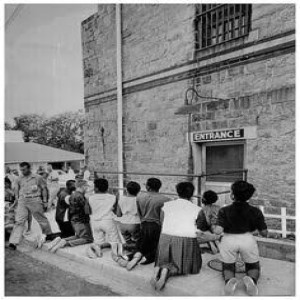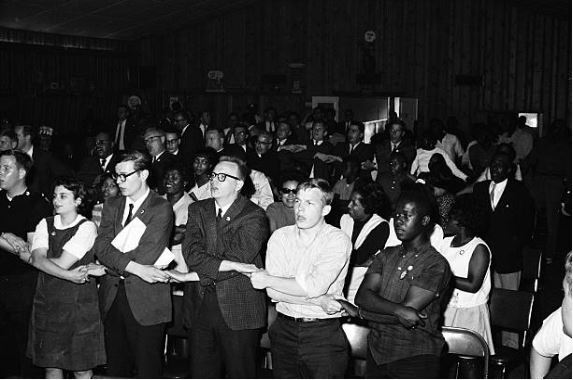
587
Downloads
7
Episodes
The podcast was created by Dion D. Banks and Kisha Petticolas, Cofounders of the Eastern Shore Network for Change. This collection of interviews was recorded and produced by ESNC board member Verlisha Taylor as a part of an event called “Reflections on Pine,” a series of events held in July 2017 to commemorate the civil unrest in Cambridge, Maryland, during the “Long Hot Summer of 1967”. These interviews focus on Cambridge during a time that, for many people, had been ignored. The first six episodes feature stories from Clarabell Tilghman, Barbara Pinder, William “Pee Wee” Jackson, Gloria Richardson, Fred Jackson, and Mayor Victoria Jackson-Stanley.“We will continue to challenge the perceptions of our community by reclaiming our narrative and sharing our truth. Our story of hope, faith, and change; a story of world-class leadership and a resilient community who decided not to accept the status quo as an option,” said Banks. “We are very proud of these first six episodes and hope more people will decide to share their stories with us. We encourage you to listen and connect with our interviewees as they share first-hand life experiences during civil unrest,” said Petticolas. ESNC’s mission is to raise awareness of issues in Dorchester County and creatively work with the community to inform, educate, and foster change, leading to social and economic empowerment. For more information about the organization, visit our website, http://www.esnccambridgemd.com.
The podcast was created by Dion D. Banks and Kisha Petticolas, Cofounders of the Eastern Shore Network for Change. This collection of interviews was recorded and produced by ESNC board member Verlisha Taylor as a part of an event called “Reflections on Pine,” a series of events held in July 2017 to commemorate the civil unrest in Cambridge, Maryland, during the “Long Hot Summer of 1967”. These interviews focus on Cambridge during a time that, for many people, had been ignored. The first six episodes feature stories from Clarabell Tilghman, Barbara Pinder, William “Pee Wee” Jackson, Gloria Richardson, Fred Jackson, and Mayor Victoria Jackson-Stanley.“We will continue to challenge the perceptions of our community by reclaiming our narrative and sharing our truth. Our story of hope, faith, and change; a story of world-class leadership and a resilient community who decided not to accept the status quo as an option,” said Banks. “We are very proud of these first six episodes and hope more people will decide to share their stories with us. We encourage you to listen and connect with our interviewees as they share first-hand life experiences during civil unrest,” said Petticolas. ESNC’s mission is to raise awareness of issues in Dorchester County and creatively work with the community to inform, educate, and foster change, leading to social and economic empowerment. For more information about the organization, visit our website, http://www.esnccambridgemd.com.
Episodes

Sunday Sep 30, 2018
50 Years, No Impact
Sunday Sep 30, 2018
Sunday Sep 30, 2018
In this episode entitled “50 Years, No Impact”, we sat down with William "Pee-Wee" Jackson, who was a pre-teen during the civil unrest in Cambridge, Maryland. He's mostly remembered because he was arrested as a teen during the movement and jailed. This led to an uprising and march to the local jail demanding his release.
Mr. Jackson is a life-long resident of Cambridge and shares an interesting perspective of the changes in the community or lack thereof.
"Everybody wants to remember the fire, but nobody wants to remember the struggle before and after the fire," Jackson says. "The school was the target because the burning was more about bringing attention to poor education conditions. The fire just got out of hand."

No comments yet. Be the first to say something!